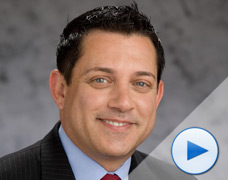FREQUENTLY ASKED QUESTIONS – Probate Litigation
What is Probate?
Probate is the method by which the assets of a deceased person are gathered, creditors paid, and the remainder of the estate distributed to beneficiaries, often with the help of probate lawyers.California counties generally conduct the probate system in a specialized probate division of the Superior Court, under the oversight of one or more experienced probate judges.
How is Probate Initiated in California?
Although any beneficiary or creditor can initiate probate, normally the person named in the will as Personal Representative, also known as the executor in other states, starts the process by filing the original will with the court and filing a Petition for Probate with the probate court. If there is no will, typically a close relative of the decedent who expects to inherit from the estate will file the Petition for Administration.A tax lawyer can provide you with more information.
How is the Personal Representative Chosen?
If the decedent had a will, the person named in the will as the Personal Representative will serve, if eligible. If that person is unable or unwilling to serve as Personal Representative, the person chosen by a majority of the beneficiaries in interest of the estate shall choose the Personal Representative. If there is no will, state law provides that the surviving spouse may serve, or, if there is no spouse or the spouse is unable or unwilling to serve, the person chosen by a majority of the beneficiaries in interest shall serve.
What Assets are Subject to Probate?
Assets owned by the deceased person are subject to probate. Assets that pass by means of title, such as real estate titled as “Joint Tenants with Right of Survivorship,” or bank accounts titled as “Transfer On Death” are not subject to the probate process. Assets that pass by means of a beneficiary designation, such as life insurance or some retirement accounts, are also not subject to probate.
In some situations, however, assets that would otherwise pass by title or beneficiary designation can be subject to the probate process, particularly in the case of a surviving spouse choosing to take an elective share against the estate. This would include pay on death accounts, jointly titled accounts, and life insurance proceeds.
How is Distribution of the Estate Handled if there is no Will?
California law sets forth rules for the distribution of an estate if there is no will.
Who is responsible for paying estate taxes?
Under the Internal Revenue Code, the estate tax is collected from the estate of the deceased. Depending on the terms of the will, the estate tax may be paid from the probate estate only, or also from a living California trust, life insurance proceeds, and other assets passing directly to beneficiaries outside the probate estate. The estate tax return, Form 706, is filed by the Personal Representative. The Form 706 is due to be filed 9 months after the date of death.
How much do your services cost?
That professional probate services or tax help are too expensive for the average person is a common misconception. In fact, our fees, compared to most IRS tax attorneys, are very affordable. Because we want to provide as much assistance to our clients as possible, we offer a variety of payment options and tailor our clients’ fees to their individual cases. In some circumstances, we even take on cases under a contingency, modified contingency, or flat-fee basis.
You can learn more about our fees by setting up a free confidential analysis. During this analysis, we’ll discuss your situation first, then discuss the services we can offer you and determine the associated fees. This way, we can guarantee an accurate quote.
It is very important that you contact us to receive your free and confidential analysis. Why? It is during your analysis that we will discuss the fees that we will charge for legal representation. We quote fees only after learning enough information about your situation and the type of service that we may be able to provide you. You should be cautious of any professional who quotes their fees to you before fully learning about your situation.
I have more questions. How can I contact you?
Call our offices toll-free at 866.494.6829 or send us an email for your free and confidential analysis.

